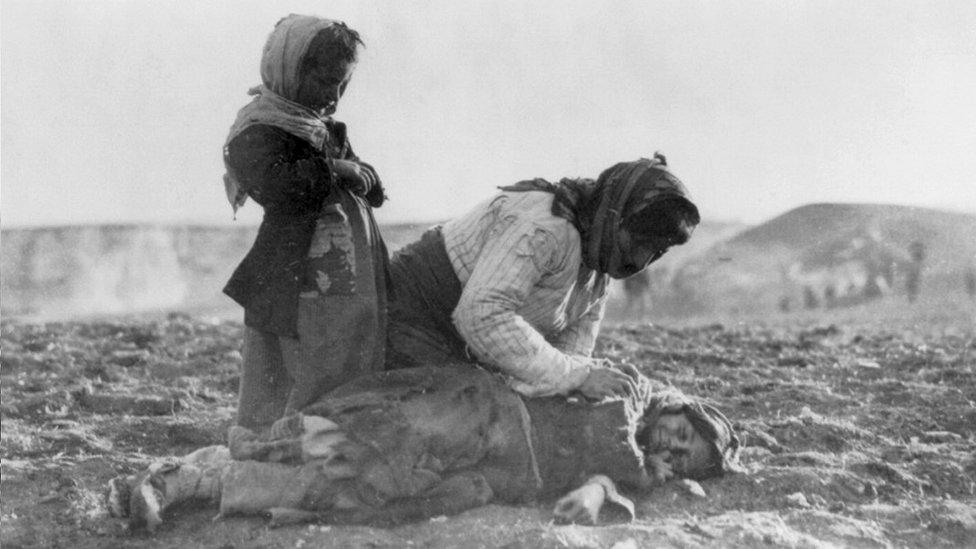France Turkey row: Genocide bill faces court hurdle
- Published

The French Senate passed the genocide denial bill on 23 January
A French bill that makes it a criminal offence to deny that genocide was committed against Armenians has been referred to France's highest court.
The bill, which covers the mass killing of Armenians by Ottoman Turks, was passed by both houses of parliament.
But a group of senators have asked the constitutional court to examine it, in a move welcomed by Turkey.
President Nicolas Sarkozy has yet to sign the bill, which Turkey has described as "racist".
France has already recognised the killings in World War I as an act of genocide but the new bill means anyone denying it faces a year in jail and a fine of 45,000 euros ($57,000).
Armenia says that up to 1.5 million people died in 1915-16 as the Ottoman empire split.
Turkey, which rejects the term "genocide", has said the number of deaths was much smaller.
Defenders of the bill point out that it covers all acts of genocide.
Fears of rift
A petition against the bill gathered the support of 76 senators, more than the minimum 60 required to ask the constitutional council to examine it.
According to France's AFP news agency, the petition was led by a group of left-wing senators.
The council is obliged to deliver its judgement within a month but this can be reduced to eight days if the government deems the matter urgent.
Ankara warned earlier that Turkey planned to respond with unspecified measures against France if the bill became law.
A spokesman for the Turkish embassy in Paris, Engin Solakoglu, told AFP on Tuesday: "Ties between France and Turkey are going to ease.
"There had been a risk of a rift. For now, this rift appears to have been avoided."
Turkish Prime Minister Recep Tayyip Erdogan welcomed the petition in Ankara, according to Turkish private television channel NTV.
"This move is in keeping with what we would expect from France," he was quoted as saying.
"I hope the constitutional council will do what is necessary."
He had previously described the bill as a "racist and discriminatory approach".
The Turkish government argues that judging what happened in eastern Turkey in 1915-16 should be left to historians, and that the new French law will restrict freedom of speech.
The killings are regarded as the seminal event of modern Armenian history, a tragic bond uniting one of the world's most dispersed peoples.
Among the other states which formally recognise them as genocide are Argentina, Belgium, Canada, France, Italy, Russia and Uruguay, but the UK, US, Israel and others use different terminology.
France is home to an estimated 500,000 ethnic Armenians while about 550,000 Turkish citizens also live in the country.
- Published24 April 2021
